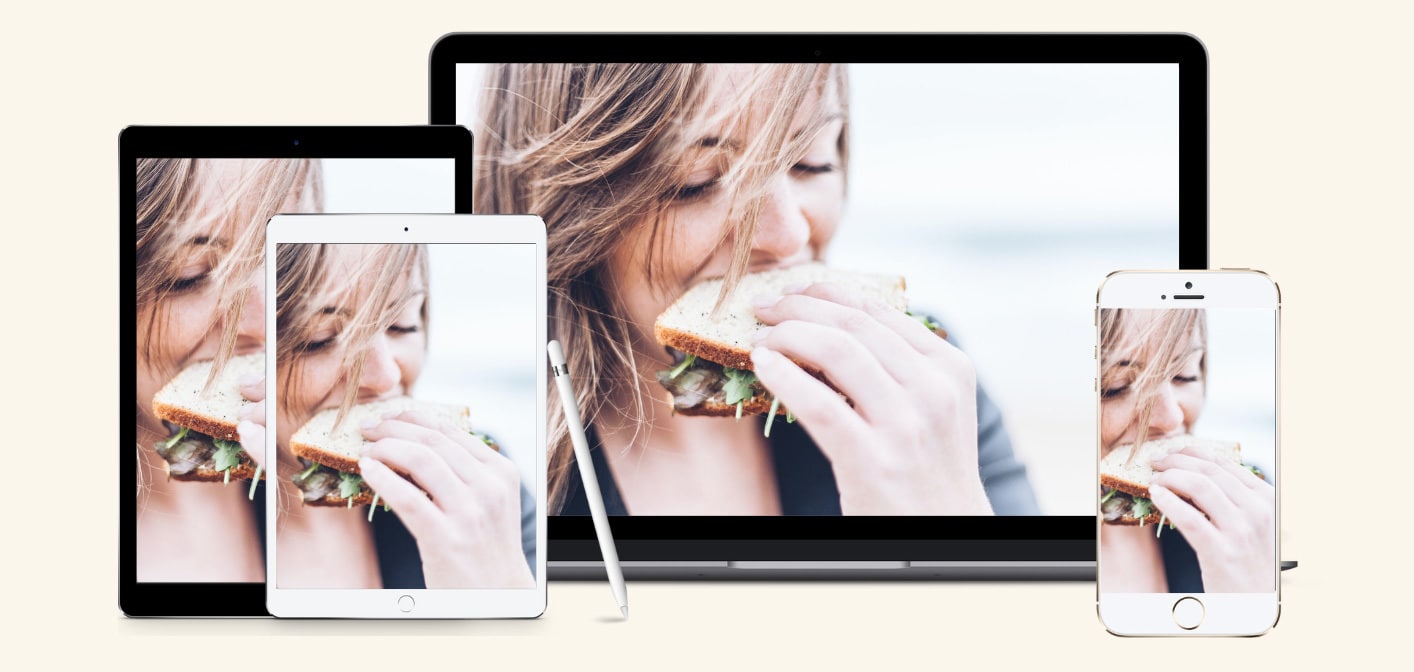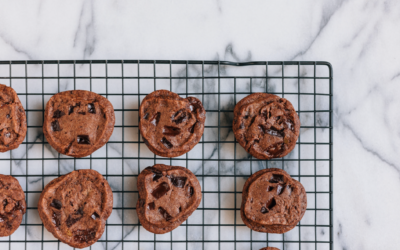If you’ve ever felt shame or regret about something you ate, you’re not alone. Food guilt is a feeling that affects so many of us, especially if you’ve spent years counting calories, jumping between diets, or battling your inner critic every time you crave a biscuit. But what if eating could feel relaxed, joyful, and guilt-free instead? That’s where food freedom comes in. It’s a powerful shift that helps you trust yourself around food and let go of harsh food rules for good.
In this article, we’ll unpick what food freedom means. You’ll discover the steps you can take to stop feeling guilty about eating, understand how intuitive eating fits in, and find hope that a kinder relationship with food is possible and within your reach.
What does food freedom mean?
Food freedom is often misunderstood. It’s not about ignoring nutrition or eating everything in sight. Instead, it’s the space where you can enjoy all foods without guilt, shame, or anxiety, and where your choices come from self-care, not self-punishment.
Imagine a world where:
- You can have dessert after dinner because you want it, not because you’ve ‘earned’ it.
- You trust your hunger and fullness, rather than external rules or calorie counts.
- Eating out or family meals don’t make you anxious.
- You stop obsessing over what you ate yesterday or what you’ll eat next.
At its core, food freedom is a trusting partnership with your body, free from diet culture’s endless rules.
Why do we feel food guilt in the first place?
If you struggle with food guilt, it’s not a personal failing. Many of us have internalised years of diet messages:
- “Carbs are bad.”
- “Don’t eat after 7 pm.”
- “That’s a ‘cheat’ meal.”
These beliefs can leave you stuck in a cycle of trying to be ‘good’, followed by guilt when you inevitably break a rule.
Other reasons food guilt can take hold:
- Labelling foods as ‘good’ or ‘bad.’
- Feeling pressure to control your eating or body shape.
- Using food to cope with emotions, only to feel worse afterwards.
- Believing that you’ll only be healthy if you’re rigid with food.
It’s exhausting and isolating, but it doesn’t have to stay this way.
First steps to letting go of food guilt?
Breaking out of this cycle starts with a small act of self-compassion. Here’s how you can begin:
1. Notice Your Food Rules
Start by recognising the invisible rules running through your mind. e.g. “I shouldn’t have carbs at lunch,” or “I must finish everything on my plate.” Write them down. Awareness is the first step toward change.
2. Get Curious, Not Judgemental
When you catch yourself feeling guilty after eating, pause and ask, “Where did this rule come from? Who benefits from it?” Challenging these beliefs with curiosity helps loosen their grip.
3. Experiment with Permission
Allow yourself to eat a ‘forbidden’ food slowly and mindfully, noticing its taste, texture, and how your body feels. You might be surprised that the world doesn’t end, and over time, food loses its power to control you.
Sometimes, it helps to start by listing your food rules and gently breaking one that feels less scary. For example, if you usually avoid eating after 7pm, try having a small snack at 7:30pm and observe how it feels. It’s important to remember that it’s completely normal to initially overeat some “forbidden” foods after a period of restriction or go overboard if you’ve broken a rule. So be kind to yourself during this process.
Also, sometimes we create our own flexible food guidelines based on how our bodies respond, not external rules. This is usually something that comes later down the line when more you learn to eat again from the ground up, rather than based on external rules. For instance, I personally avoid caffeine after midday because I know from experience it helps me sleep better. This kind of internal, flexible guideline supports your well-being without guilt or rigidity.
Remember, you don’t have to do this alone. Seeking support from someone who understands this journey can make a huge difference.
How to stop feeling guilty about food?
The path to food freedom is a process, not an overnight fix. Here are some ways to start letting go of guilt:
- Practice self-compassion: Talk to yourself as you would a close friend. Mistakes or cravings don’t make you ‘bad.’
- Neutralise food language: Instead of saying you’ve been ‘good’ or ‘bad,’ describe food as what it is: satisfying, tasty, or nourishing.
- Eat regularly: Skipping meals or restricting food often leads to overeating and more guilt. Honouring your hunger is a form of self-respect.
- Accept emotional eating as human: Sometimes, we eat for comfort, and that’s okay. Emotional eating becomes problematic only when it’s your main coping tool, so start by noticing, not blaming. If you’re tired of guilt overshadowing your meals, learning how to stop food obsession is a gentle, meaningful next step.
How intuitive eating supports food freedom
Intuitive eating is a research-backed approach that’s all about rebuilding trust with your body. Instead of relying on diet rules, you tune into signals like hunger, satisfaction, and emotions. Intuitive eating makes space for:
- Honouring your hunger and fullness: No more clock-watching or strict meal plans, just listening to what your body tells you.
- Ditching food police: Letting go of diets and the belief that you need to ‘make up’ for what you eat.
- Making peace with all foods: Granting unconditional permission to eat stops the binge-restrict cycle, allowing true food freedom to develop over time.
- Practising gentle nutrition: Caring for your health with a relaxed, non-perfectionist mindset.
If you’re interested in diving deeper, there’s a dedicated exploration of intuitive eating that guides you through these principles step by step.
Finding support for your food freedom journey
Letting go of guilt and finding trust around food isn’t always easy, but you don’t have to face it alone. Nude Nutrition specialises in supporting people just like you with one-to-one, compassionate, online nutrition coaching. Whether you’re stuck in a pattern of restriction and guilt or you want to reconnect with your body, our team of Registered Dietitians and intuitive eating specialists are here to help you build a peaceful, sustainable relationship with food.
You deserve to enjoy food without anxiety. Step towards your own version of food freedom and discover how life can feel when food is just… food.
Key Takeaway: Food freedom means reconnecting with your needs, letting go of guilt, and trusting your body in a way that feels natural, compassionate, and joy-filled. With patient self-awareness, gentle challenges to old rules, and supportive guidance, you really can break the cycle and embrace eating as a source of happiness again.





